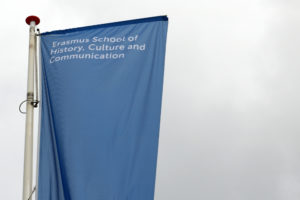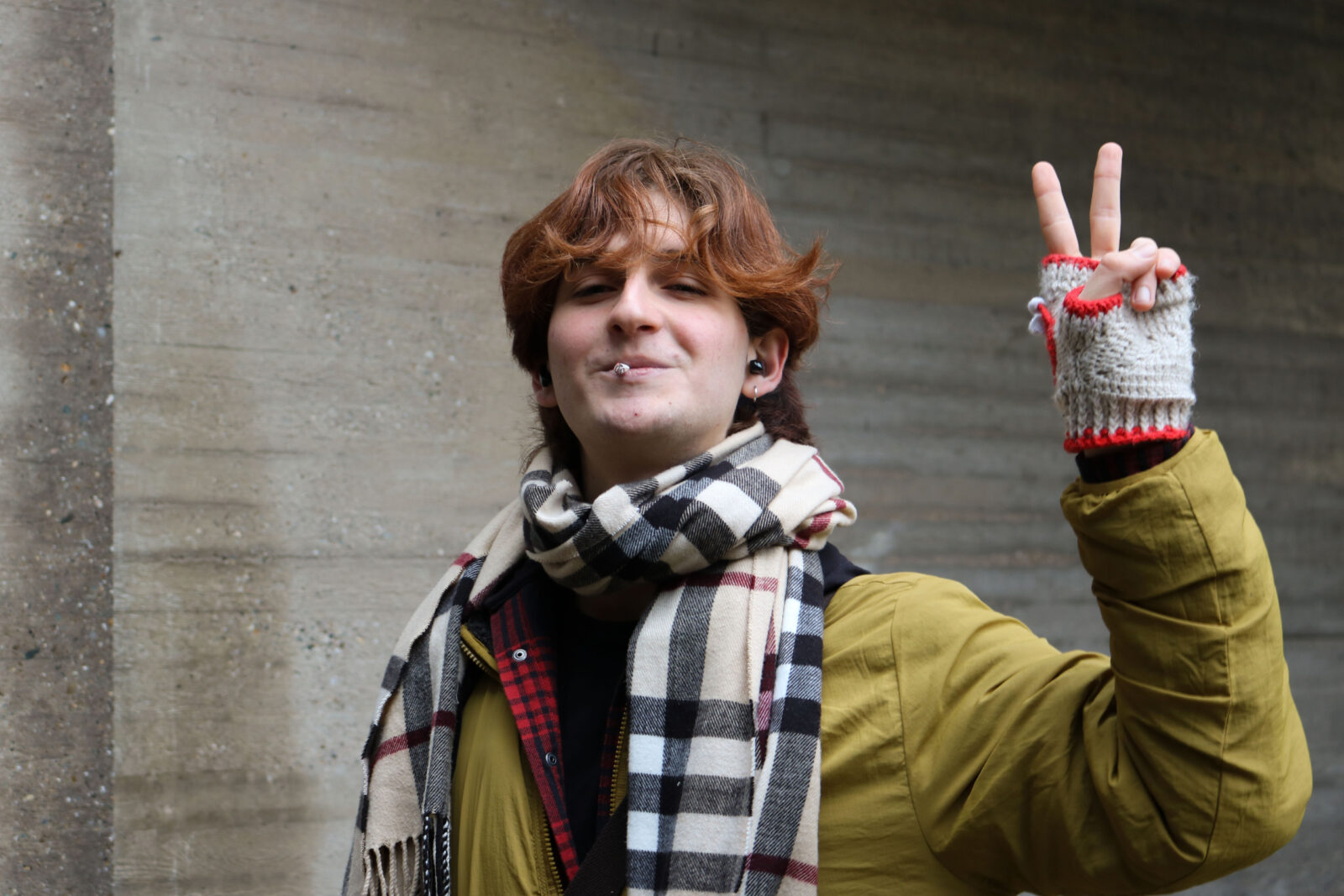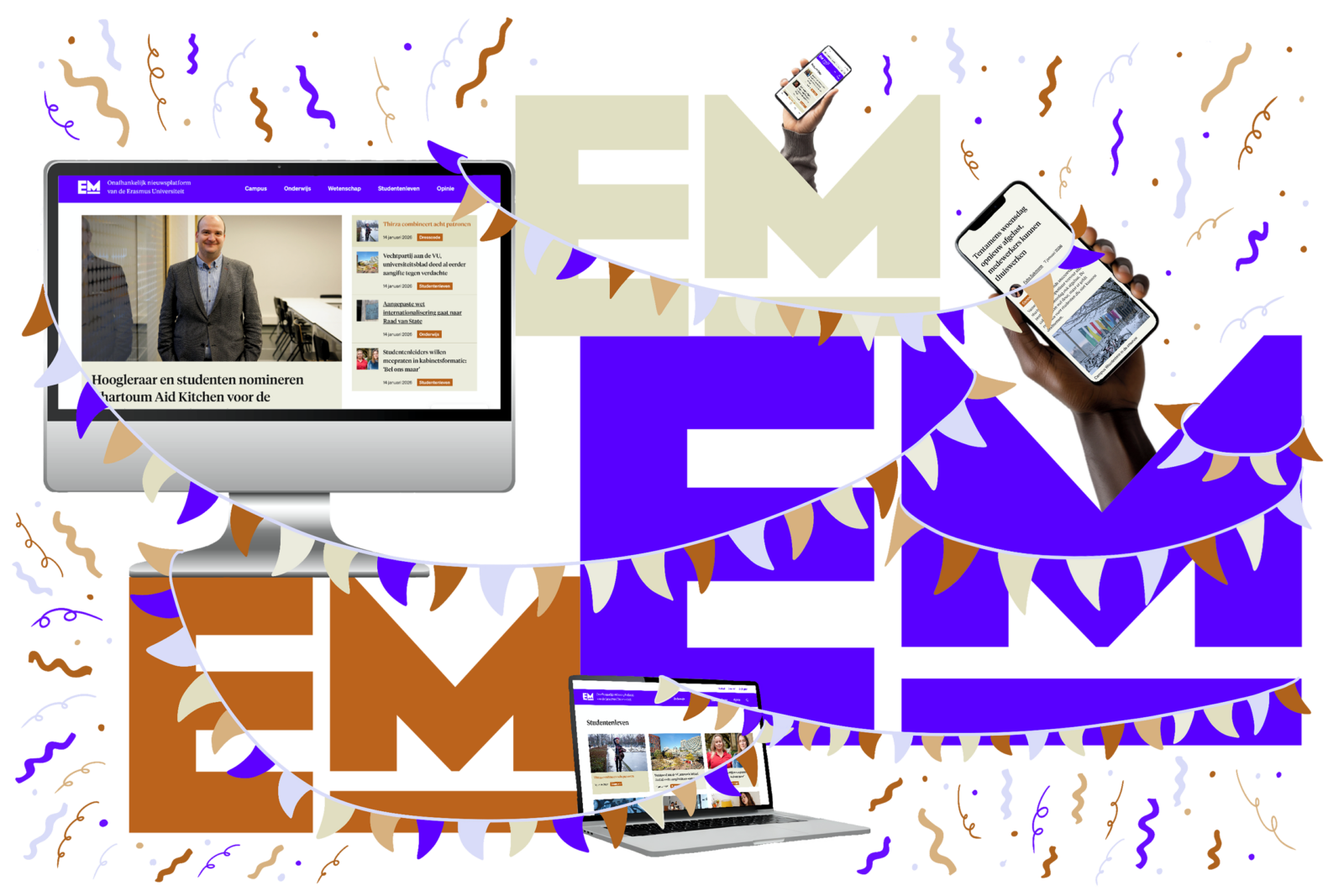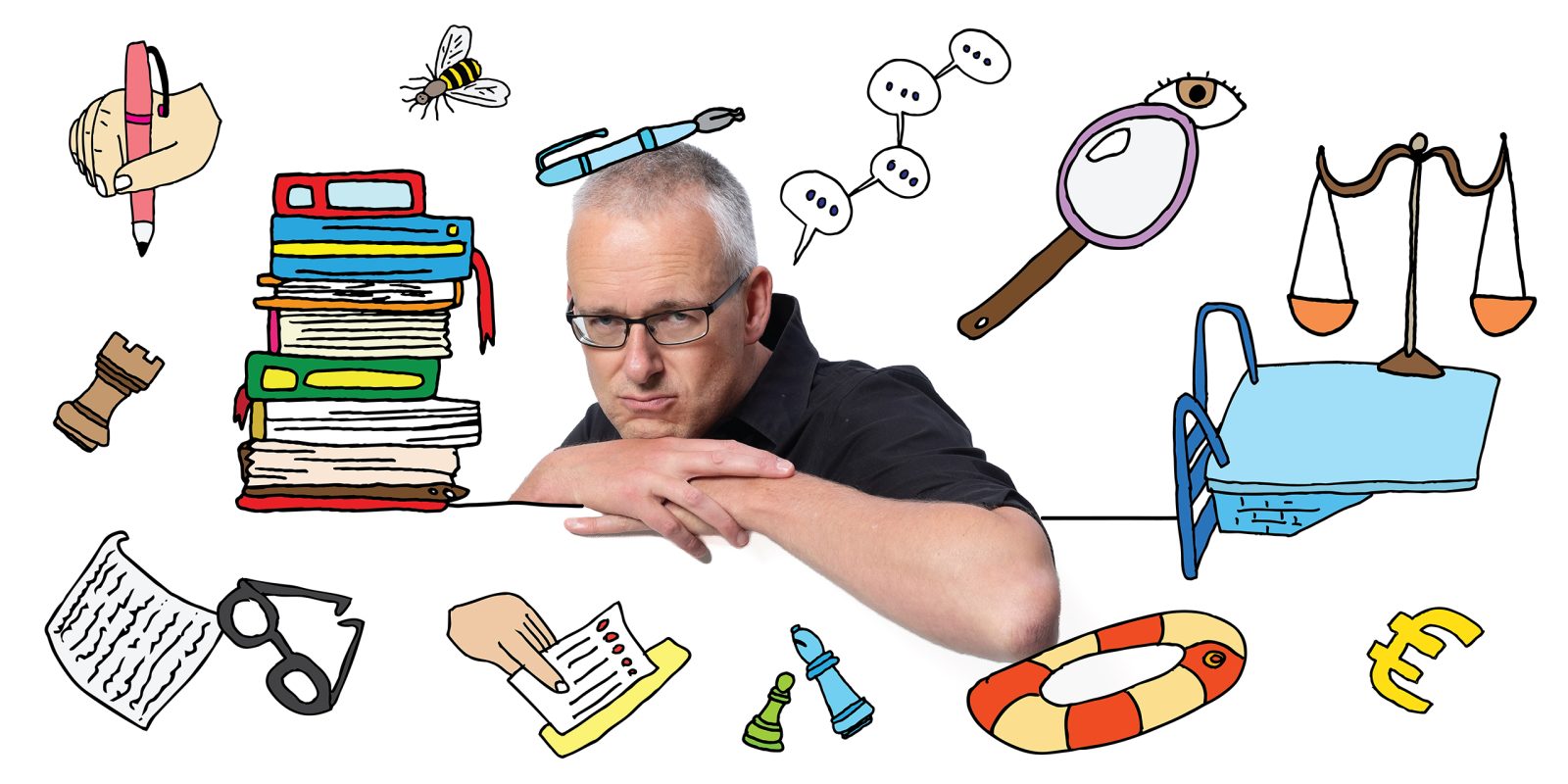ESHCC and the wolf: a cautionary tale
For more than a year and a half now, the small island of Erasmus University where I teach and work, ESHCC, has been under-fire. The unfortunate truth is that dealing with imposed deans, accusations of fear culture, and possible annexations is not very attractive, at least not in the academic world. And it seems like our growing recruitment numbers, good student evaluations and the arrival of big grants are just not good enough to confront the other narrative.

In this context, last week we learned – in some counted letters and published in the university portal as well, as if it was a minor thing – that the Executive Board had hired an external forensic office to look surreptitiously into the mailboxes of colleagues at the ESHCC in order to find the origin of a supposed leak. And since we have been in turmoil for months, it seems like just another chapter of a dwindling soap opera with a mediocre screenwriter.
But it is not. If the past months could be framed as the exhausting fight of a small school to survive, this last event needs to get the attention of EUR in general. Both the substance and the form of what is happening impact anyone who ever thought of themselves as members of this “community”.
The substance: protect those at the top, bury the whistleblowers
We were informed last Tuesday that the Executive Board had commissioned an external forensic investigation firm to find a supposed “leak” to newspaper NRC. The leak would be linked to a news story about misconduct, specifically plagiarism, by our former interim dean in her 1988 dissertation and her speeches as rector of the University of Amsterdam (UvA) between 2007 and 2017. According to the EB’s intranet notice, they had “serious grounds to suspect that ESHCC employees could be the source of this article”.
Why is being the source of an article a problem? This question is apparently answered in the same notice as follows: “the article has lead to discussions and created an atmosphere of distrust and insecurity that is very damaging for the person involved”. In this sentence, there are three consequences that demand critical reading.
Read more
-

External bureau investigating plagiarism leak at ESHCC
Gepubliceerd op:-
Campus
-
First: that a journalism article leads to discussion – as far as I know – is desirable in a democratic society. Second: the possibility that an article might “create” an atmosphere of distrust and insecurity is quite old school in terms of media effects. It removes all agency from the people who read and interpret such article.
Third, it is said that such atmosphere is “very damaging for the person involved” who by the way left EUR unexpectedly a couple of days before the NRC article was published. This person is no longer an employee of Erasmus University. And still, the Executive Board feels the need to protect that person’s honor with this investigation more than they feel the need to respect their own employees or the reputation of the University.
More importantly, the EB suggests that this person’s honor was damaged by the NRC article and not by the practices that the article reveals: that someone who was instrumental in strengthening the measures against plagiarism in students’ work actually did not follow the norms of correct citation and attribution in her own work.
Notably, the plagiarism in the ESHCC’s former dean’s report about the future of our school is in no way covered by the NRC article. Furthermore, in the letter sent to communicate the investigation to the Faculty Council, the EB argues that our University has other mechanisms to report plagiarism, which were not followed. I know, and I can tell, that several people alerted the Executive Board about the plagiarism before it became public (in Erasmus Magazine, after the publication of the NRC article), and the EB’s response was that copying or bad referencing on a policy document was not relevant. Assuming someone indeed decided to make this public by going to a journalist looking for due diligence, on which basis can they be blamed?
For those of us who refuse the fake-news ideology, quality journalism still plays a fundamental role in democratic life, has power that the rest of us outside of the press office do not have: it can be the checks and balances when the official mechanisms are not working properly. Whistleblowers do what they can to call attention to issues that they deem relevant for public debate and exposure. It is highly problematic when any employer creates an environment where it is known that complaining about the wrong-doings of higher ranking employees will be persecuted. In the sake of free thought and independent scholarship, it is deeply shameful that a University that wants to be “an international hub for critical thinking” decided to do so. Especially when this action’s aim is to protect a high-ranking manager.
The form: surveillance is among us
- NRC reporter calls forensic examination at ESHCC ‘outrageous’
- External bureau investigating plagiarism leak at ESHCC
- Controversial merger advice by Van den Boom contains plagiarism as well
- ‘Plagiarism in work of departing Dean Dymph van den Boom’
Not only content-wise has the reasoning of the EB been flawed, but also the procedure it has followed is notoriously problematic. It invested University money (that hard-earned money, that money that we fight for every year at the Ministry) to hire an external consultant and make a forensic investigation. The investigation was communicated to the people involved, their management and their elected representatives (Faculty and University Council) after it was conducted. It is not clear why those who were researched got the honor of being treated as suspects. Apparently, not all of us got our mailboxes searched, but only a selected few.
The analogy that comes to my mind is finding a letter from your landlord that states something like this: “Hi. Somebody I like told me that you were making them uncomfortable. And since we all want to feel safe, and you should understand that, I came in with the keys that I have because I’m your landlord, I checked every single thing that I wanted to check, and then I left without taking anything. Don’t worry – I didn’t find anything, so you are cleared”. Most of the people whose emails were searched got a letter on more or less those terms: we thought you were involved but we checked and you are not, so we are fine. But no. We are not fine. If a landlord did that to most of us, we would immediately report to the police, find a new house or a lawyer. Or at least question if the whole thing is legal in the first place.
This topic has been on the top of our head for almost a week now. In discussing it with others, some have reminded me that we can’t be too naïve about how we use our emails in this brave new world we live in, but I think that is not the point. Another person, one of those who felt “threatened” by the whole plagiarism affair sent me a message that said: “Why aren’t you happy? This means the good ones are winning.” How can I explain this person that absolutely no one can win through actions like this? That we are all swamped in corporate bullying and surveillance? That this is the best example of a culture of fear? If this is the new Erasmian Way, it seems to be a very worrying one.
I write this all as a cautionary tale. Indeed, at ESHCC we have been like Peter crying wolf for a while. But this time, Peter was not wrong: the “wolf” is apparently already here, and in a rage.
Disclaimer: I currently serve at the ESHCC Faculty Council as a chair and I’m also the representative of my school at the University Council. This text represents my personal views and not the ones of the participatory bodies of which I am a member. If anything, it informs the values that I strive to enact as a representative.
De redactie
-
Ana Uribe Sandoval
Lecturer at ESHCC
Latest news
-

University calls on people to remind smokers, security guards don’t send smokers off campus
Gepubliceerd op:-
Campus
-
-

What do the new European housing plans mean for students?
Gepubliceerd op:-
Campus
-
-

Makeover for Erasmus Magazine: new and more accessible website is live
Gepubliceerd op:-
Campus
-
Comments
4 reacties
-
Guus Smeets op 24 September 2019 om 12:09
Thank you for your courage to write this great article. I fully agree with all your arguments and I think you express exactly how many of our colleagues feel.
-
Helen Hintjens op 2 October 2019 om 01:27
Whatever happened to whistle-blowers’rights, or do they not exist in Erasmus university? To ignore or excuse academic plagiarism today, by students, staff, or even one’s best friend, is to invite your own downfall tomorrow. Do not shoot the (presumed) messengers! Could whoever ordered this surveillance have violated privacy laws in the process? Great article Ana.
-
Irene van Staveren op 2 October 2019 om 12:17
I very much agree. In the UK, universities have already been labelled as anxiety machines by their own workers. I had hoped, naively as it now turns out, that this would not happen in the Netherlands.
For two publications on this:
– Hall, R. & Bowles, K. (2016). Re-engineering Higher Education: The Subsumption of Academic Labour and the Exploitation of Anxiety. Workplace, 28, 30-47. doi.org/10.14288/workplace.v0i28.186211
– Liz Morrish, 2016. Pressure Vessels: the epidemic of poor mental health among higher education staff. Occasional Papers no. 20. Oxford: HEPI. URL: https://www.hepi.ac.uk/2019/05/23/pressure-vessels-the-epidemic-of-poor-mental-health-among-higher-education-staff/
Comments are closed.
Read more in opinion
-

If the rector can spout AI nonsense, then so can everyone else
Gepubliceerd op:-
Column
-
-

At the end of the year, Erasmus Magazine wishes everyone an empty head, warm hands and a full heart
Gepubliceerd op:-
Editorial
-
-

The gloomy Christmas of Erasmus
Gepubliceerd op:-
Column
-






KGO op 23 September 2019 om 23:12
Dear Ana,
I think you are being to kind here, although I understand you would want to be a bit diplomatic. Getting people to rummage through your email creates distrust, that cannot easily be overcome. The executived will reap the results of their flawed decision. It goes to show that fear is already in the midst of their advisors et al, for in normal circumstances someone would have raised his concerns. Using tax money to go after a non-relevant leak is stupid in every sense.
Keep up!
KGO